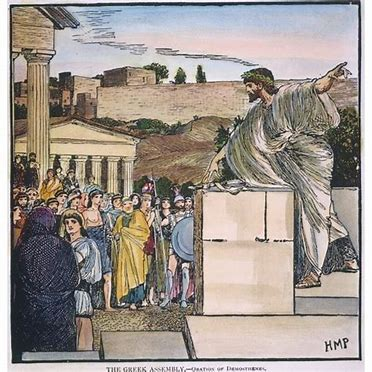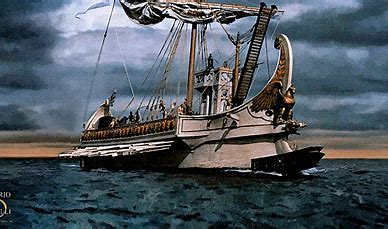Harley Fields had always wanted to make a difference. From an early age he had a precocious moral compass. He knew right from wrong before the age of reason, how intelligence was parceled out, and how belief and desire cancelled each other. Before long he had been singled out as one of the talented few who were marked for success.
He was an Honor Camper, arbiter of playground disputes, President of his class, and first from his small Midwestern town to go to Harvard. Through it all he never lost his bearings, never was tempted by sex or drugs, never teetered over the moral edge, and needed no prompting to take the right path.
Where, asked some, would he find traction? He was a moral skater, an eye-painter, a balletic imposter, a windbag and moral poseur. Yet these critics, all stumbling and grappling their way up the ladder, had no idea what vision was. They could no more see the forest for the trees - grasp overarching ideas of universal importance than the man in the moon. Harley, on the other hand, gifted with mature insight at an early age, and the resolve to use it to his and others' advantage, was beyond reproach. Young men like him came only once in a generation. He would go to Washington and be the next John F Kennedy.
He began modestly, an intern in the office of the Honorable Hiram R Peacham, representative of his rural district, one known for husbandry and good sense, one forgotten in the tussle of Congressional politics, but one which faithfully and regularly returned Rep. Peacham to office. It was an advantage, the Congressman explained to his young charge, to come from nowhere. It gave cover for doing great things for the country; and so it was that the farmers of ____County were happy with the small favors granted to them - a scholarship here, a penny or two more in farm support there - and never begrudged him his accelerated moves to Chairmanships of important committees.
What Peacham had, Harley noticed, was a silver tongue - an inimitably graceful oratorical style, a beautifully woven, intricately fine discourse in which the glimmer and gleam outshone the garment. Few came away unimpressed because his speeches, so marvelously diaphanous said nothing and everything. This, Harley quickly understood, was the nature of political genius.
He couldn't believe his good fortune A lackey, a mere syce in the stables of the rich and powerful, he rubbed shoulders with those men who were applauded, cheered, and feted because of their celebrity, a political tautology. They were popular because they were popular, sought after by all breeds of media, blessed with Hollywood looks, Strindbergian will, and the philosophical perspective of Epictetus.
They, said their critics, were nothing more than scrim floating before the real drama, political wraiths emerging from the mist and fog of Washington to say nothing, be nothing, and do nothing.
Yet they appealed to the young Farley for this very quality of Darwinian adaptability. Little by little, step by step, they evolved from one organism to another more suited to the environment. A little more fiscally conservative here, a little less doctrinaire on social issues there. Far from simply following the way the wind blew these men were canny aeronautical engineers who upped themselves to the jet stream as and when it changed course.
Harley also knew that such natural fungibility, changing as the light changed, and becoming part of and above the crowd at the same time, won him praise not only only in the corridors of power but in the bars and clubs of K Street. Sniffing at the hems of power gave him the scent of success, an Yves St Laurent cologne of proximity to the greats. Women looked at him not as the political novitiate that he was, but an influencer, a young man with savvy on the way up.
Life was a charm, an easy ride with gentle takeoffs and gentle landings. Where was the nastiness of Foggy Bottom, he wondered? The bloodletting, death by a thousand cuts, jealousy, revenge, and sharp stilettos? There of course, but among the less adept, the rubes, the unpolished - men who had got to Washington by hook or by crook but who, once installed in the Rayburn Building fuddled and foundered, scratched and pecked and more often than not were returned unceremoniously back to the farm.
The infamous divisiveness of the city? The bastions and barricades, the skirmishes and outright warfare across the aisle? Yes, that too was there and there in abundance, but of little consequence to a comer. Harley had arrived with a will to make a difference, but saw quickly that there was no difference to make. Reform was red herring, faux, Utopian, and hopelessly idealistic. It made good copy. Progressive ideas made the rounds from podium to press to social media and back again without making a dent in the body politic. It was a marvelous merry-go-round, a carousel of porcelain horses and brass rings signifying nothing.
So this was what Washington was all about, Harley concluded. All Sturm und Drang, a soap opera, a melodrama without any moral traction or even good sense. What could be easier?
Why would anyone labor below decks on the slave ships of K Street, indentured gofers, the prize of partnership dangled as bait for eighteen hour days? Or why would they choose Wall Street where hangings were the ordre du jour, hours on the rack for money more easily gotten from political donors in Washington?
If you played your cards right, you could get reelected every two years, have your coffers filled to overflowing with cash contributions from supporters and eager sponsors alike, and have a harem of beautiful, ambitious Washington women
There were no drawbacks to a Washington career, no ugly downsides, no morally compromising positions, no rushing for cover....if you kept your wits about you, your silver tongue polished, and your beliefs as fungible and scrim-like as possible.
And so it was that the young Harley Fields became the august, elder statesman Fields, a man of influence and social desirability. He had his scratchy moments, that Richardson woman, but she was easily and gracefully left on the curb; and that jealous suitor from Wisconsin, but he too was no match for the sharp rapier of a seasoned politician like Harley. In short, he retired still a man in his prime, to parts unknown - probably to Rimini or St. Bart's - without a care in the world and millions safe and sound in Aruba.
Ahh, the life of a politician, he thought fondly. Who would have thought?







No comments:
Post a Comment
Note: Only a member of this blog may post a comment.